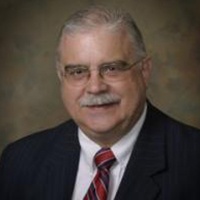Wilmot Estate Lawyer, Ohio
Sponsored Law Firm
-
 x
x

Click For More Info:
-
R. Lasko Co. LPA, LLC
1406 W 6th St STE 200, Cleveland, OH 44113» view mapBusiness, Estate, Real Estate, Employment Competent Legal Representation
Let R. Lasko Co. LPA, LLC handle all your legal needs today!
216-574-2602
Edwin Howard Breyfogle
✓ VERIFIEDDivorce & Family Law, Estate, Bankruptcy & Debt
Since 1976, Edwin H. Breyfogle Attorney at Law has been helping people escape the stranglehold of debt through expert legal representation under the U... (more)
DOUGLAS D JONES
✓ VERIFIEDEstate, Trusts, Family Law, Bankruptcy, Real Estate
Affordable Quality Legal Services With A Caring Approach Toward A Winning Strategy
Douglas Jones is a Probate Lawyer proudly serving Canton, Ohio and the neighboring communities.
William Emil Demsky
Real Estate, Federal Appellate Practice, Estate, Elder Law
Status: In Good Standing Licensed: 48 Years
Richard Fox
International Tax, Estate Planning, Family Law, Business
Status: In Good Standing Licensed: 48 Years
Tamara Jayne Stanford
Juvenile Law, Federal Appellate Practice, Estate, Elder Law
Status: In Good Standing
Douglas Doyle Frautschy
Real Estate, Federal Appellate Practice, Estate, Corporate
Status: In Good Standing Licensed: 25 Years
Nathan Daniel Vaughan
Commercial Real Estate, Industry Specialties, Wills & Probate, Corporate
Status: In Good Standing Licensed: 20 Years
Joel Christopher Fichter
Real Estate, Estate, Workers' Compensation, Elder Law
Status: In Good Standing Licensed: 41 Years
Glen F. Buttacavoli
Real Estate, Federal Appellate Practice, Estate, Elder Law
Status: In Good Standing Licensed: 40 Years
 Ronald Lasko Cleveland, OH
Ronald Lasko Cleveland, OH AboutR. Lasko Co. LPA, LLC
AboutR. Lasko Co. LPA, LLC


